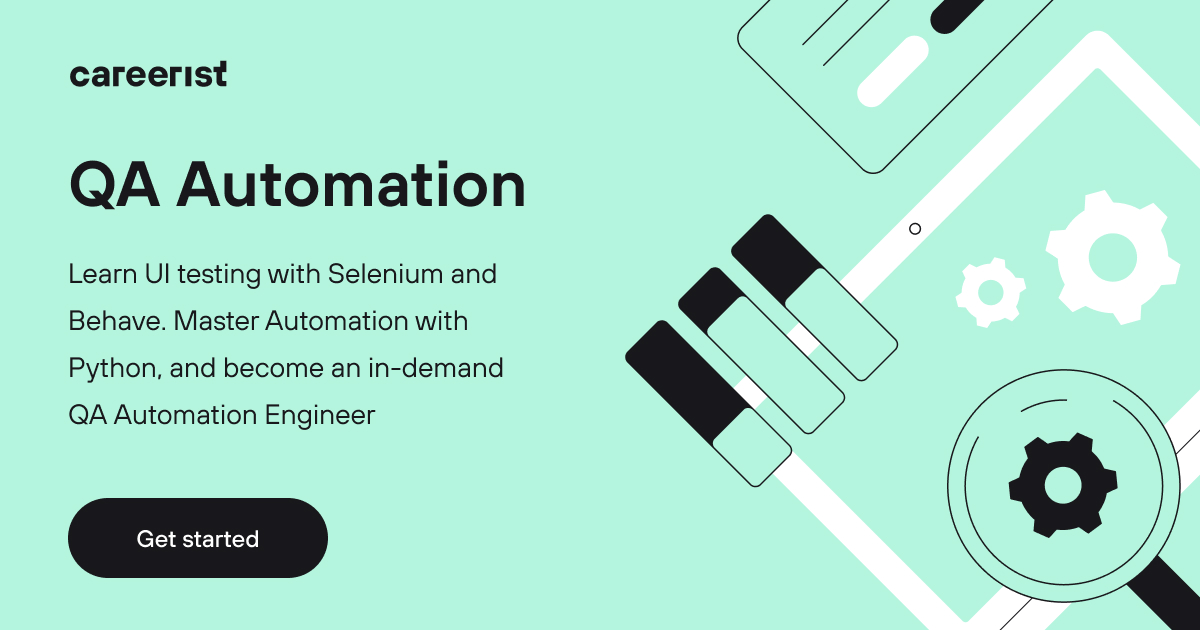QA automation engineer course Boost Your Skills and Career Today

QA automation engineer course Boost Your Skills & Career Today. Looking to boost your skills & career? Join our QA automation engineer course today! Learn essentials & advance in the tech world with ease.

Introduction to QA Automation Engineering
The role of a QA automation engineer has become increasingly vital in software development, given the surge in the demand for quality assurance in various applications. A QA automation engineer is responsible for designing & implementing automated tests to ensure that software delivers the best performance, functionality, & user experience. What makes this role unique is its intersection of technical expertise & analytical thinking, involving the use of automation tools & programming languages to enhance the testing processes.
As someone who has taken the course on QA automation engineering, I can attest to how it has significantly improved my skills & opened up numerous career opportunities in the tech industry. My learning experience was enriching, providing foundational knowledge while also diving deeper into advanced automation tools.
Why Choose a QA Automation Engineer Course?
Choosing to enroll in a QA automation engineer course offers a host of benefits that can significantly enhance your career prospects. As businesses increasingly adapt to new technologies, the demand for skilled automation testers is on the rise. A structured course helps you acquire relevant knowledge about different testing frameworks, programming languages, & automation tools commonly used in the industry.
Learn crucial testing strategies.
Become proficient in various programming languages.
Hands-on experience with popular automation tools like Selenium, Appium, & JUnit.
Enhance your problem-solving skills.
Gain insights into industry best practices.
This course not only prepares you for immediate roles but also lays a solid foundation for career advancement. With companies prioritizing automation for efficiency, possessing a certification in this area can set you apart from your peers.
Course Structure: What to Expect
Every QA automation engineer course typically consists of core modules covering programming languages, test automation frameworks, & tools for CI/CD (Continuous Integration/Continuous Deployment). The structure is designed to cater to varying skill levels, ensuring that both beginners & experienced individuals derive value from it.
Module Description
Introduction to QA Automation This module covers the basics of QA & its importance in software development.
Programming for Automation Learn languages like Python, Java, or C# to write automated tests.
Test Automation Frameworks Explore various frameworks such as Selenium & JUnit, understanding how to implement them.
Performance & Load Testing Learn how to measure software performance & load efficiency.
CI/CD Best Practices Understand how to integrate testing into the CI/CD pipeline for automated deployments.
The interactive nature of these courses often includes practical assignments & project work, allowing students to apply their knowledge immediately. This hands-on approach significantly boosts confidence, making participants job-ready.
Essential Skills Gained from the Course
Completing a QA automation engineer course equips you with a range of skills crucial for this role in the tech industry. From technical abilities to soft skills, every aspect is vital for professional growth.
Problem-Solving: Enhanced analytical thinking helps in identifying issues early in the software development life cycle.
Coding Skills: Proficiency in languages such as Java, Python, or JavaScript is often emphasized.
Attention to Detail: Automating tests requires a keen focus on detail to identify discrepancies.
Collaboration: Ability to work with software developers & other team members efficiently.
Time Management: Balancing multiple testing scripts & deadlines is a critical skill.
These skills not only make individuals more competent in performing their tasks but also help in securing better job opportunities in competitive job markets.
Career Opportunities as a QA Automation Engineer
The demand for QA automation engineers has significantly increased, leading to a diverse range of job opportunities. Companies across various domains, including finance, healthcare, & e-commerce, seek professionals who can ensure the reliability of software products through automated testing.
Job Title Average Salary (USD)
QA Automation Engineer $90,000
Test Automation Developer $95,000
Quality Assurance Analyst $85,000
Software Engineer in Test $92,000
Test Lead $100,000
Many organizations offer progression paths, allowing you to take on more senior roles like QA lead or even shift into a broader software development manager position. Overall, a career in QA automation is rewarding, both intellectually & financially.
Importance of Staying Updated
Enrolling in a QA automation engineer course is just the starting point. The technology landscape is continuously evolving, which requires professionals to remain current with new tools, methodologies, & best practices in the software testing field. Continuous learning can involve attending industry conferences, joining online forums, & subscribing to relevant publications for the latest insights.
Participate in webinars focused on automation testing trends.
Join GitHub communities that specialize in QA automation projects.
Follow influential figures in the QA automation space on social media platforms.
Take on certification updates & recertification when necessary.
This commitment to lifelong learning helps maintain your relevance & increases your adaptability in a fast-paced environment. Remember, being proactive about enhancing your skills is equally important as your formal education.
The key to success in any automation journey lies in continuous education & adaptation, as stated by Dr. Mariam Kuhic.
Choosing the Right Course
Finding a suitable QA automation engineer course is crucial to your success. Not all courses are equal. Look for a program that offers comprehensive material & practical applications. Factors to consider include course content, duration, & the qualifications of the instructors. You might want to evaluate factors like:
Length of the course (short-term vs. long-term).
Mode of instruction (online or in-person).
Industry recognition.
Student reviews & testimonials.
Access to job placement support & industry connections.
Researching various options can help ensure that you invest your time & money wisely, paving the way for a fulfilling career.
FAQs
What does a QA automation engineer do?
A QA automation engineer designs, develops, & executes automated tests to ensure the quality of software applications. They work closely with development teams to identify testing requirements & deploy automation solutions to enhance efficiency.
Is prior programming experience necessary for taking a QA automation engineer course?
While prior programming experience can be advantageous, it is not always a requirement. Many courses offer beginner-friendly modules that teach foundational programming skills necessary for automation testing.
How long does it take to complete a QA automation engineer course?
The duration may vary, typically ranging from a few weeks to several months, depending on the depth & breadth of the curriculum offered. Many courses are available in full-time, part-time, & self-paced formats to cater to diverse learning needs.
What are the most popular tools taught in a QA automation engineer course?
Commonly taught tools include Selenium, TestComplete, JUnit, Appium, & others. The specific tools may vary between programs, so it is important to check the course syllabus beforehand.
QA automation engineer course
In summary, pursuing a QA automation engineer course significantly boosts your skills & opens doors to rewarding career opportunities. With the right training & continual learning, you can thrive in the field of software testing & automation. Investing in this professional path not only enhances your capabilities but positions you as a valuable asset in today’s job market. If you're looking to advance in your career, enrolling in a quality course can be the first big step toward achieving your professional goals.






